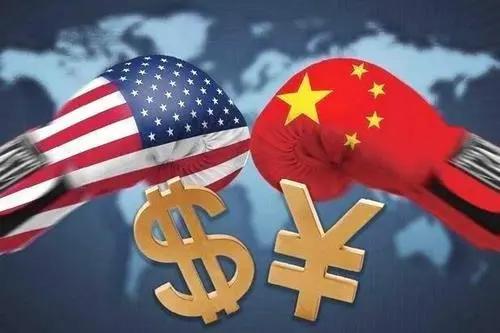
With the increasing integration of the global economy, the financial and trade relationship between China and the United States has become increasingly close. However, in recent years, Sino-US financial and trade tensions have gradually heated up, which undoubtedly brings no small uncertainty to the economic development of the two countries and even the world. Especially for the American agricultural community, this tension has caused widespread concern and concern.
As one of the world's largest producers and exporters of agricultural products, China and the United States have always had close agricultural trade with each other. China is an important export market for US agricultural products, and US agricultural products have also had a certain impact on China's agricultural production. In this context, the financial and trade tensions between China and the United States are directly related to the vital interests of the American agricultural industry.
First, agricultural exports have been hampered by financial and trade tensions. Due to the increase of tariffs and trade barriers, the export cost of U.S. agricultural products has increased and their competitiveness has decreased. This has directly affected the income of American farmers and the stable development of the agricultural industry. Many farmers face sales difficulties and financial pressure, and even bankruptcy. This not only hurts farmers, but also has a negative impact on the entire U.S. economy.
Second, trade tensions have also led to increased uncertainty about agricultural investment. Because of the uncertain market outlook, many investors are cautious about investing in U.S. agriculture. This has led to a decrease in investment in the agricultural sector, which in turn has affected the innovation and upgrading of agricultural technology and sustainable development. Without adequate financial support, US agriculture may face problems such as backward technology and low production efficiency, which will not be conducive to global food security and sustainable agricultural development in the long run.
In addition, the financial and trade tensions between China and the United States have also had an impact on global supply chains. The global supply chain of agricultural products is a complex system that involves cooperation and exchanges between many countries and regions. Trade tensions could lead to supply chain disruptions or instability, which in turn could affect global agricultural supply and price stability. This is particularly important for countries that rely on international agricultural markets, as any disruption to supply chains can have a serious impact on their food security.
In the face of these challenges, the US government and all sectors of society are actively seeking solutions. On the one hand, the government has responded to the impact of trade tensions on agriculture through policy adjustments, such as providing export subsidies and strengthening trade cooperation with other countries. On the other hand, all sectors of society are also striving to enhance the competitiveness and sustainability of the agricultural industry, and improve the efficiency and quality of agricultural production through scientific and technological innovation and green development.
However, it is important to emphasize that resolving the problems arising from the financial and trade tensions between China and the United States is not an overnight process. This requires both sides to maintain a calm and rational attitude and resolve differences and problems through dialogue and consultation. At the same time, all countries in the world should strengthen cooperation, jointly safeguard the stability and development of the multilateral trading system, and promote the prosperity and harmony of the global economy.
Under the current circumstances, China and the United States should adhere to the principles of mutual respect and equal consultation and properly handle each other's concerns and interests. We should strengthen communication and understanding, enhance mutual trust and cooperation, and bring China-Us relations back to the track of sound and stable development. This is not only in the fundamental interests of the two peoples, but also conducive to global economic stability and prosperity.
At the same time, we should also recognize that China-Us financial and trade relations are not only an economic issue, but also involve global governance and the stability of the international order. Therefore, the two sides need to fully consider the overall and strategic factors when dealing with trade issues and avoid taking drastic measures to further worsen the situation.
In the long run, China and the United States should work together to promote the reform and improvement of the global economic governance system and strengthen communication and coordination in the field of international economic cooperation. We will make positive contributions to global economic prosperity and stability by working together to address global challenges and promote innovative development.
In short, the financial and trade tensions between China and the United States have brought many uncertainties and challenges to the development of the global economy, especially the US agricultural industry. However, through rational responses and joint efforts on both sides, we are expected to find ways and means to solve the problem and move China-Us relations and global economic development towards a more stable and sustainable future. In this process, keeping an open mind and strengthening communication and cooperation will be key.

The South Korean political arena has once again been embroiled in a public controversy over a judicial investigation that has shaken the entire nation.
The South Korean political arena has once again been embroi…
On the morning of December 29th local time, the precious me…
According to the US media Barchart, recently, the fluctuati…
On December 29th, Mar-a-Lago in Florida, USA, witnessed a h…
SoftBank Group announced on Monday that it has agreed to ac…
Recently, the US State Department issued a visa ban, adding…